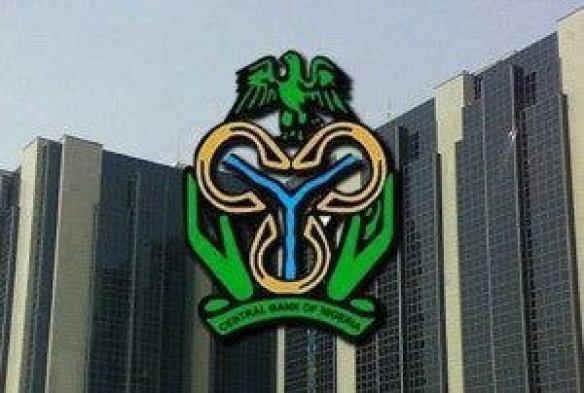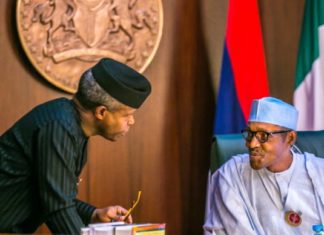The Central Bank of Nigeria (CBN) yesterday released $200 million to all commercial banks in the country to meet legitimate end-user demand.
The regulator had decided to stop selling foreign exchange to BDCs in the country.
According to a senior central bank official, all customers requiring FX for legitimate transactions such as school fees, PTA, BTA, and medical payments will be required to submit minimal documentation.
However, CBN Governor Godwin Emefiele informed journalists of the end of FX sales to BDCs after a two-day Monetary Policy Committee (MPC) meeting in Abuja.
Emefiele ordered all commercial banks to set up special FX sales and disposal branches for legitimate customers. He said the CBN will no longer process or issue new BDC licenses, and that all current licenses, regardless of stage, have been suspended.
It will now channel weekly FX allocations meant for BDCs to commercial banks, he said
Emefiele said commercial banks could now accept customer FX cash deposits.
He explained that the measures were taken to help the apex bank better fulfill its mandate while preserving the commonwealth and financial system stability.
Read also: Buhari cautions contractors and businesspeople against bribery
As a result of their unethical and unethical practices, Emefiele said the BDC operators had to be removed from the FX market.
The CBN governor stated that instead of catering to retail users who needed around $5,000 for FX, BDCs now transacted in millions. He claimed BDCs bought dollars at N197 from the CBN and sold them to customers at N250.
Emefiele noted the growth of BDCs from 74 in 2005 to 2,786 today. Every month, the CBN receives close to 150 new BDC license applications.
He said the move was unavoidable due to the decline in dollar reserves, which he claimed had fallen from $37.3 billion in June 2014 to $28 billion now.
The CBN governor was concerned by Nigeria’s monthly import bill of N917.6 billion.
“They have abandoned their goals,” he added of the BDC operators. They are now agents of bribery and corruption. We cannot continue with the BDC market’s unethical practices.”
Emefiele said that the same promoters owned numerous BDCs to get multiple FX from the apex bank.
Many foreign organizations and embassies use BDC to fund their operations, he added. We will aggressively prosecute Nigerian banks that engage with illicit BDCs and reveal foreign patronage.”
“The public should be aware that once a consumer submits basic paperwork to acquire FX, all banks must instantly satisfy that demand or sell foreign exchange to the customer,” Emefiele stated.
In case of unsatisfactory resolution by banks, customers should contact the CBN on our toll free line 07002255226 or email cbd@cbn.ng to lodge complaints with specifics of the bank transaction.
Emefiele said that the CBN sold over $20,000 per day to over 5,500 BDCs, which amounted to around $110 million per week and $5.72 billion per year.
This unwholesome behavior cannot continue in Nigeria, he added.
“Despite the CBN’s measures to preserve the naira’s value, we have seen that players in some industries have not been helpful,” he said.
“Our BDC operators have abandoned the basic aims of its formation, which was to serve retail end customers needing $5,000 or less.
“Instead, they have become forex wholesalers transacting millions of dollars each transaction. The only nation today where a central bank sells dollars directly to BDC operators is Nigeria.
« Nigerian bureau de change operators have not repaid the bank’s offer to assist preserve pricing stability in the big market.
They have grown selfish, stubborn with anomalous high profit sales while regular Nigerians are left to face the agony and therefore suffer.
In addition to the unforeseen but bad results, the bank has observed the following unwanted but unfortunate outcomes.
“Increase in operators primarily interested in higher margins and profits regardless of market pricing.
“Gradual dollarisation of the Nigerian economy, affecting monetary policy and undermining CBN cashless policy initiatives.”
He said that BDCs have used CBN FX to fund unauthorized activities.
To sell their FX to the registered investors and exporters’ window, they have resorted to dealing with illicit FX dealers in breach of our rules, he added.
“And we will deal mercilessly with Nigerian banks that have allowed their banking and payment systems infrastructure to be utilized to assist these illegal foreign currency dealings.”
“We will report those foreign organizations to their regulators and write to them,” Emefiele continued. These unexpected consequences put the CBN under financial strain and restricted foreign exchange.”
Emefiele voiced worry over the country’s level of insecurity, citing detrimental effects on business confidence and overall economic activity. He asked the federal government to beef up security in rural areas to guarantee uninterrupted cultivation.
However, the MPC decided to keep the MPR at 11.5% and the asymmetric MPR corridor of +100/-700 basis points.
The Reserve Ratio remained at 27.5% and the Liquidity Ratio at 30%.
As the CBN’s lending rate to commercial banks, the MPR frequently affects the cost of borrowing in an economy.
For Emefiele, who read the committee’s communiqué, keeping all monetary policy instruments constant was necessary to promote the economy. He said the MPC chose to keep all policy settings unchanged to allow existing policy measures to continue supporting growth recovery and macroeconomic stability.
The committee also highlighted the little rise in external reserves, from $32.78 billion on June 30 to $33.83 billion on July 22.
Aggregate credit was at N24.23 trillion at the end of May 2021, up from N22.68 trillion at the end of December 2020, reflecting a N1.55 trillion year-on-year rise.
He said the central bank had awarded N756.51 billion to 3,734,938 smallholder farmers on 4.6 million hectares of land, with N120.24 billion extended to 627,051 farmers on 847,484 hectares of land under the Anchor Borrowers’ Programme for the 2021 wet season (ABP).
The Agribusiness/Small and Medium Enterprise Investment Scheme (AGSMEIS) received N121.57 billion, while the Targeted Credit Facility (TCF) received N318.17 billion, he added (SMEs).
“The Bank issued N3 billion to 7,057 beneficiaries, of whom 4,411 were individuals and 2,646 were SMEs.
A total of N3.22 billion was given to 356 recipients spanning the film, TV, software, fashion, and IT industries.
“The Bank issued N923.41 billion to 251 real sector projects, of which 87 were in light manufacturing, 40 in agro-based industries, 32 in services, and 11 in mining,” Emefiele added.
In all, 98.41 billion Naira was disbursed for 103 health care projects, of which 26 are pharmaceuticals and 77 are hospital services.
“The CBN Healthcare Sector Research and Development Intervention (Grant) Scheme (HSRDIS) granted N232.54 million to five recipients for the development of COVID-19 and Lassa Fever diagnostic kits and devices.”
Join Television Nigerian Whatsapp Now
Join Television Nigerian Facebook Now
Join Television Nigerian Twitter Now
Join Television Nigerian YouTUbe Now






















